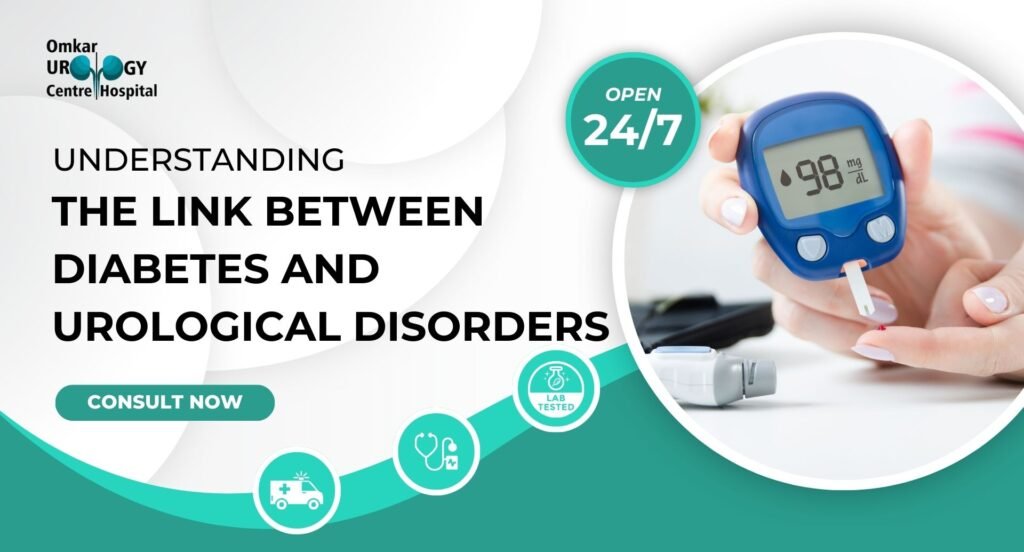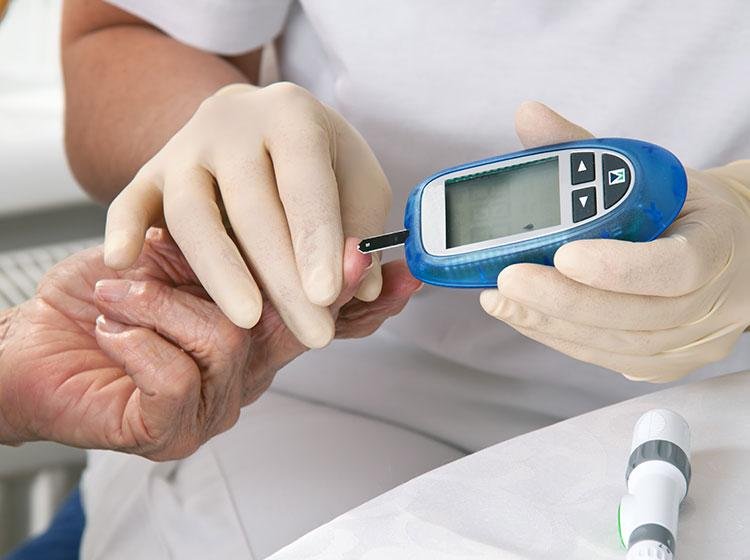
Diabetes is a chronic condition that affects millions of people worldwide, and its complications extend beyond blood sugar levels. Among the many health challenges faced by diabetic patients, urological disorders often remain under-discussed but are equally critical. Understanding the connection between diabetes and urological health is essential for timely diagnosis and effective management.
How Diabetes Affects Urological Health
- Nerve Damage (Diabetic Neuropathy): Diabetes can cause damage to the nerves controlling the bladder, leading to issues like overactive bladder, urinary retention, or incontinence. This nerve damage can disrupt the communication between the brain and bladder, causing frequent or incomplete urination.
- Urinary Tract Infections (UTIs): Diabetic patients are more prone to infections, including UTIs, due to high glucose levels in the urine, which create a favorable environment for bacterial growth.
- Bladder Dysfunction: Diabetic cystopathy, a condition characterized by reduced bladder sensation and poor emptying, is common among diabetic individuals. This can lead to complications such as infections or kidney damage if left untreated.
- Sexual Dysfunction: Diabetes can impact sexual health in both men and women. Men may experience erectile dysfunction due to impaired blood flow and nerve damage, while women may face vaginal dryness and reduced sexual sensation.
- Kidney Damage: Diabetic nephropathy, a condition affecting kidney function, can indirectly contribute to urological issues by causing fluid retention and urinary abnormalities.

Managing Urological Disorders in Diabetic Patients
Early detection and proper management of urological issues are crucial for improving the quality of life for diabetic patients. Here are some essential steps:
- Regular Screening: Routine urological evaluations can help identify potential issues before they become severe.
- Blood Sugar Control: Maintaining optimal blood sugar levels reduces the risk of nerve damage and infections.
- Hydration: Drinking adequate water can help flush out bacteria and reduce the risk of UTIs.
- Medications and Therapies: Depending on the specific condition, medications, pelvic floor exercises, or even surgical interventions may be recommended.
A Message from Dr. Amit Kumar (Founder & CEO of Omkar Urology Hospital)
“At Omkar Urology Hospital, we understand the profound impact diabetes can have on urological health. Our team is dedicated to providing comprehensive care tailored to the unique needs of diabetic patients. By combining advanced diagnostic tools with personalized treatment plans, we aim to improve your urological health and overall well-being. Remember, timely intervention is key. If you are experiencing any symptoms or have concerns, do not hesitate to consult with a specialist. Together, we can work towards a healthier, more fulfilling life.”
Conclusion
The link between diabetes and urological disorders underscores the importance of an integrated approach to healthcare. By addressing both conditions simultaneously, patients can achieve better outcomes and lead a healthier life. If you or a loved one are managing diabetes and facing urological challenges, seeking expert advice from trusted professionals like those at Omkar Urology Hospital can make all the difference.
Frequently Asked Questions (FAQs)
Q1: How does diabetes increase the risk of urinary tract infections (UTIs)?
Ans: High glucose levels in the urine provide a favorable environment for bacterial growth, making diabetic individuals more susceptible to UTIs. Additionally, weakened immune responses in diabetics can further increase the risk.
Q2: What is diabetic cystopathy, and how is it treated?
Ans: Diabetic cystopathy is a condition characterized by reduced bladder sensation and poor emptying. Treatment options include medications, catheterization, and pelvic floor exercises, depending on the severity of the condition.
Q3: Can diabetes-related urological issues be reversed?
Ans: While some complications, such as nerve damage, may not be fully reversible, proper management of blood sugar levels and timely medical intervention can significantly improve symptoms and prevent further damage.
Q4: How common is erectile dysfunction in diabetic men?
Ans: Erectile dysfunction is quite common among diabetic men due to impaired blood flow and nerve damage caused by chronic high blood sugar levels. Treatments include medications, lifestyle changes, and counseling.
Q5: What preventive measures can diabetic patients take to avoid urological disorders?
Ans: Preventive measures include maintaining optimal blood sugar levels, staying hydrated, practicing good hygiene, undergoing regular medical check-ups, and promptly addressing any symptoms of urological issues.
Q6: When should I consult a urologist if I have diabetes?
Ans: You should consult a urologist if you experience symptoms like frequent urination, pain during urination, urinary incontinence, or sexual dysfunction. Early consultation can help in timely diagnosis and treatment.








